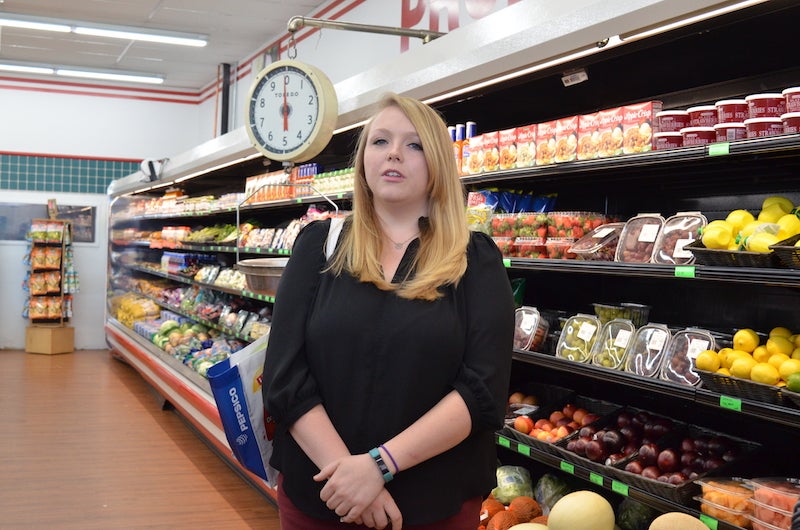Keys to success in making healthy food choices
Published 3:02 pm Friday, February 23, 2018

- Licensed Dietitian Lita Chatham gives advice on make good food choices on a budget at Associated Foods during an event hosted by the YMCA. (JOYANNA LOVE/ADVERTISER)
By JOYANNA LOVE/ Senior Staff Writer
Making wise choices when it comes to food and staying on budget require careful planning.
Licensed Dietitian Lita Chatham of the Alabama Department of Public Health gave some Chilton County residents keys to success and avoiding pitfalls during a grocery store tour hosted by the YMCA of Chilton County and Associated Foods on Feb. 23.
She encouraged shoppers to have a plan for meals for the week and a list of needed items before ever heading to the store.
“I would encourage you, don’t try to make every little change that we talk about today … you can’t change all of your habits in one day or in one short period of time,” Chatham said.
She encouraged attendees to find one to three changes to make to start.
“All foods fit,” Chatham said. “It is just about portion sizes, and choosing healthier options more of the time.”
Shopping the perimeter of a store first is recommended, because that is where the fresh items are ordinarily displayed. Chatham said buying pre-cut, prewashed fresh fruits and vegetables cost more than whole fresh fruits and vegetables. She encouraged choosing fruits and vegetables for snacking.
The darker the color of a vegetable the more nutrition the vegetable has.
She said bagged salad is a good option if convenience is needed because the nutrition is still there.
Chatham said making half of a plate of food fruits and vegetables is a good rule. Buying produce in season can help keep costs low.
When buying frozen vegetables, Chatham encouraged reading the ingredients to ensure that there are not added sauces, which can add sodium and fat.
“Frozen fruits and vegetables can be good choices,” Chatham said.
She said canned vegetables have more sodium, but are definitely better than not buying vegetables at all. Chatham also said rinsing the canned vegetables can remove some of the sodium.
The dietitian also debunked some myths during the tour, pointing out that organic farming can still use pesticide. Because this natural pesticide is removed more with rain water, it is usually applied more often, according to Chatham, meaning the pesticide on an organic and non-organic vegetable is about the same.
She said an organic vegetable is not more nutritious, but it is more expensive.
“There is no research that supports that organic is better for us or safer,” Chatham said.
Rinsing fresh fruits and vegetables is important.
Chatham also pointed out that coconut oil is high in saturated fat, and soy milk does not actually have any more protein than cow’s milk. She also cautioned that some drinks displayed in the juice area say “100 percent natural flavor,” but are not 100 percent juice. She said 100 percent juice is a good choice but can be high in sugar if more than one serving is drank at a time.
Chatham said olive oil is a healthy fat, as are nuts.
Any oil that is solid at room temperature is not a good choice, Chatham said.
As the tour moved on to the lunchmeat section, Chatham said those with heart disease or a history of the disease in their family should watch their sodium intake, which processed meats typically have a lot of. She said there are sometimes low sodium, low fat options available at a deli counter, which the employee could tell them about.
“Those are going to be your once in a while foods,” Chatham said. “You really don’t want to eat a lot of processed meats.”
She said watching for sales of fresh meat can help keep food costs down.
When reading a food nutrition label, noting the serving size is important. Chatham said a bag of chips that looks like it is one serving could actually be four. So, if someone ate the whole bag, this person would actually have to multiply the numbers given for cholesterol, sodium and carbohydrates by four to get an accurate number.
Another cost saving tip way to stay away from frozen meals. Chatham said many times the same dish could be made for less money and with less sodium if someone makes it themselves.






